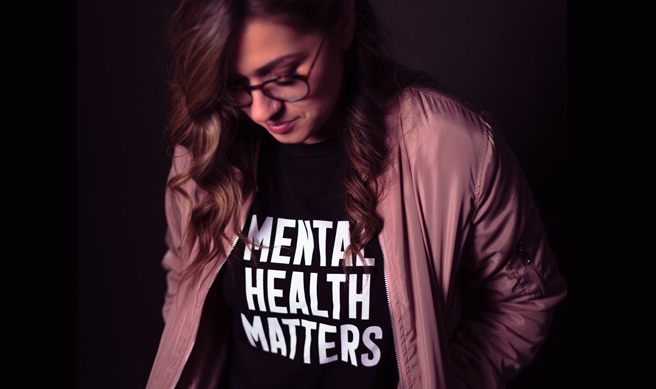CARING FOR YOUR MENTAL HEALTH IN TIMES OF UNCERTAINTY
By Stephanie Canales
 With the 2024 election right around the corner, or the election results having just come in (depending on when you’re reading this), survivors of sexual violence may be experiencing worry, anxiety, and a perception of threats to their human rights and identity. At SARC, we want you to know that these are all natural reactions. All feelings are valid, normal, and okay. We understand that your experiences and feelings are real—even more real for many of our historically marginalized community members who face significantly higher impacts from systems, structural violence and oppression in our community.
With the 2024 election right around the corner, or the election results having just come in (depending on when you’re reading this), survivors of sexual violence may be experiencing worry, anxiety, and a perception of threats to their human rights and identity. At SARC, we want you to know that these are all natural reactions. All feelings are valid, normal, and okay. We understand that your experiences and feelings are real—even more real for many of our historically marginalized community members who face significantly higher impacts from systems, structural violence and oppression in our community.
If you are experiencing anxiety or other feelings impacting your mental health during this time, read on for some practical coping skills to help care for your mental health.
Uncertainty stirs fear in many of us, and most likely anxious overthinking. Anxiety produces racing thoughts that might feel like a Chess game where there are multiple moving pieces in your mind, resulting in a multitude of possible outcomes. From that, we begin hustling with unease, fear, and sometimes the pending feeling that something terrible is going to happen. Being concerned about our future is normal and healthy. But when the worry won’t stop our nervous system goes into overdrive. Many people then struggle to sleep, eat less, or overeat. Also, normal activities often become challenging to do, or simply lose interest in activities they used to enjoy.
Here are five ways to care for your mental health during uncertain times.
Social support
Finding like-minded people increases a sense of safety and reminds us that we are not alone. Isolation can worsen depression, so reaching out to people you know, trust and connect with is crucial for positive mental health.
Practice thought defusing techniques
Be aware of your daily thoughts. We understand that thoughts often originate from implicit beliefs ingrained in us from childhood and traumatic experiences. Thought defusing involves pausing to observe your thoughts to realize their impact on feelings and actions. Techniques like testing our thoughts help create more realistic beliefs.
Reduce avoidance
Avoidance perpetuates anxiety and depression. Facing fears in a supportive environment can lead to solutions and regain hope. Identify one way where you may be avoiding something important in your life, and list ways you may be able to address that issue in a supportive environment.
Use healthy coping skills
Positive coping skills offer lasting relief from discomfort. Examples include enjoying music, nature, meditation, baths, and maintaining healthy eating and sleeping habits.
Use your emergency resources
Seek support from therapists or crisis lines during significant mental health challenges. Advocates can guide you to appropriate resources in your community.
Worrying about the future is okay, and we can proactively protect our mental health in the process.
- Surround yourself with social support from like-minded people.
- Practice awareness of the narrative in your thoughts, gently face your problems, and be kind to yourself.
- Remember that you have lots of resources to receive help with like-minded community and through social support networks to thrive during times of uncertainty.
If you are a person who has been impacted by sexual violence—survivors, friends and family—and are feeling anxious because of this uncertain time in our nation, you can call/text, or message SARC’s 24-Hour Support & Resource Line at (503) 640-5311 or (888) 640-5311 to talk with a certified and confidential advocate.
The 988 Suicide & Crisis Lifeline (988) is also available 24 hours to support you with any issues related to mental health struggles, or emotional distress, alcohol or drug use concerns, or if you just need someone to talk to. Visit 988lifeline.org to learn more.
Be well.


